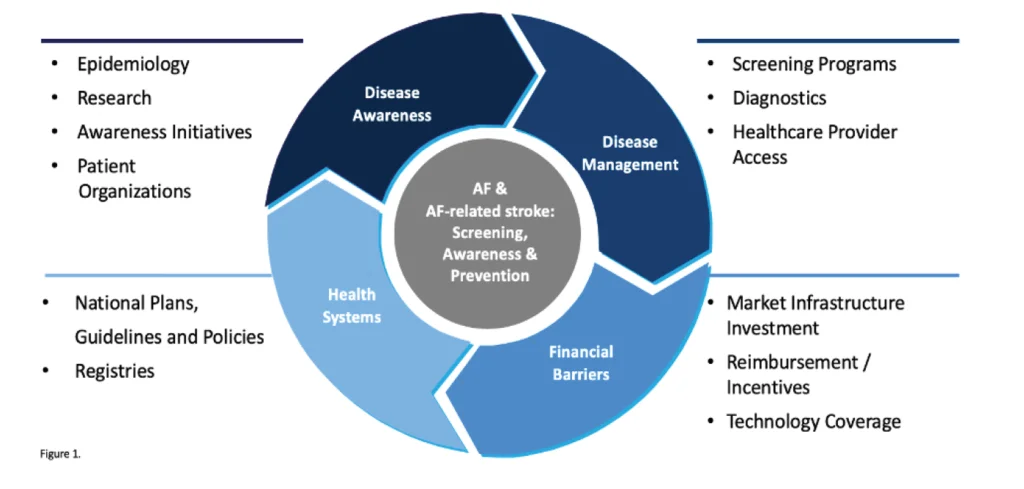For many, a stroke will be the first sign of atrial fibrillation (AF), the most common heart arrhythmia worldwide affecting nearly 33.5 million individuals. However, this number is likely underestimated due to asymptomatic individuals remaining undiagnosed and unaware that their symptoms are a sign of AF. Individuals ≥ 65 years of age are disproportionately affected, and for people, ≥75 AF is the leading cause of stroke, a consequence of cardiovascular aging and age-related increases in comorbidities.
To better understand where public health policy deficits exist within the AF and AF-related stroke screening, awareness, and prevention landscape and how to best develop a health policy response, a qualitative literature review was conducted in ten countries with known AF clinical and public health interventions: Australia, Belgium, Canada, France, Germany, Italy, Spain, Sweden, United Kingdom, and the United States.

This robust ten-country review was produced by representatives of the World Heart Federation, Arrhythmia Alliance, Santa Maria della Misericordia Hospital and Karolinska Institute. The study was funded by Pfizer Inc and Bristol Myers Squibb. Because AF patients present an elevated risk of having an AF-related stroke, improvements to screening, awareness, and prevention become essential to limiting the consequences of AF-related stroke and the associated healthcare costs. The results in this review offer a collection of data focused on the policies of AF and AF-related stroke and the healthcare landscape that contributes to supporting policy development.


